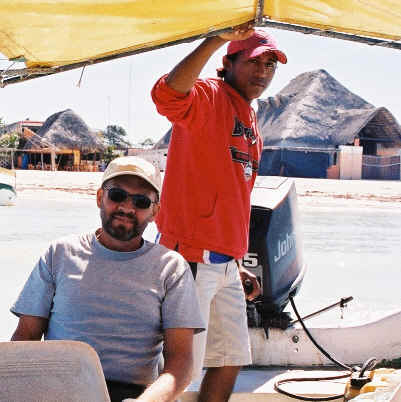From the New York Post
November 22, 2005 -- U.S. Supreme Court Justice Antonin Scalia says the high court did not inject itself into the 2000 presidential election.
Speaking at the Time Warner Center last night, Scalia said: "The election was dragged into the courts by the Gore people. We did not go looking for trouble."
But he said the court had to take the case.
"The issue was whether Florida's Supreme Court or the United States Supreme Court [would decide the election.] What did you expect us to do? Turn the case down because it wasn't important enough?"[emphasis added by You Know Me]
Let’s see, what did we expect the Supreme Court to do when the Bush campaign appealed the Florida Supreme Court’s decision to the U. S. Supreme Court?
How about conform to the U. S. Constitution and defer to the Florida high court?
To review in brief, on election night 2000 Florida counted the votes and determined that Bush and Cheney had received 1,700 and some more votes than did Gore and Lieberman. Gore, in accordance with Florida law, petitioned for recounts in certain counties. The Florida supreme court ordered that certain recounts proceed and that “under votes” in certain counties be counted. Bush petitioned the U. S. Supreme Court for a stay of the Florida high court’s ruling. Scalia, on behalf of the Supreme Court, accepted Bush’s petition. Ultimately a majority of the U. S. Supreme Court accepted Bush’s petition, stayed the Florida court’s ruling, and decided the election, rather than remand the matter to the Florida high court as suggested by a couple of Supreme Court justices.
I’m a college drop out, so am no legal scholar; but the Constitution seems quite clear to me on the subject of appointing “electors” to the Electoral College. Please, those schooled in the subject correct me if I’m wrong in my facts or conclusions.
Article II of the U. S. Constitution provides that:
Section I
[1] The executive power shall be vested in a President of the United States of America. He shall hold his office during the term of four years, and together with the Vice-President, chosen for the same term, be elected as follows:
[2] Each State shall appoint, in such manner as the legislature thereof may direct, a number of Electors, [emphasis added by You Know Me] equal to the whole number of Senators and Representatives to which the State may be entitled in the Congress; but no Senator or Representative, or person holding an office of trust or profit under the United States, shall be appointed an Elector.
So the Constitution clearly establishes it as a duty of the states to determine how they are to appoint electors.
Article X of the Bill of Rights, or the tenth amendment to the Constitution, provides:
The powers not delegated to the United States by the Constitution, nor prohibited by it to the States, are reserved to the States respectively, or to the people.
It seems to me to be very simple. The state’s are assigned the duty to appoint electors and nothing in the Constitution even implies a role for the federal government in doing so. If the U. S. Supreme Court determined a Constitutional violation in the Florida high court’s adjudications then it should have remanded the matter to the Florida court as seems to be the norm for appellant courts, not decided the election as it did.
Justice Scalia talks a good line about eschewing judicial activism; but when it came to the most important decision to become before the Supreme Court during his tenure, he opted for activism.
Scalia is an ideologue and, despite his protestation otherwise, a judicial activist; and, thus, a hypocrite. Aside from that he is a very articulate, entertaining, humorous fellow and a completely arrogant pedant.
Tuesday, November 22, 2005
Subscribe to:
Post Comments (Atom)

No comments:
Post a Comment